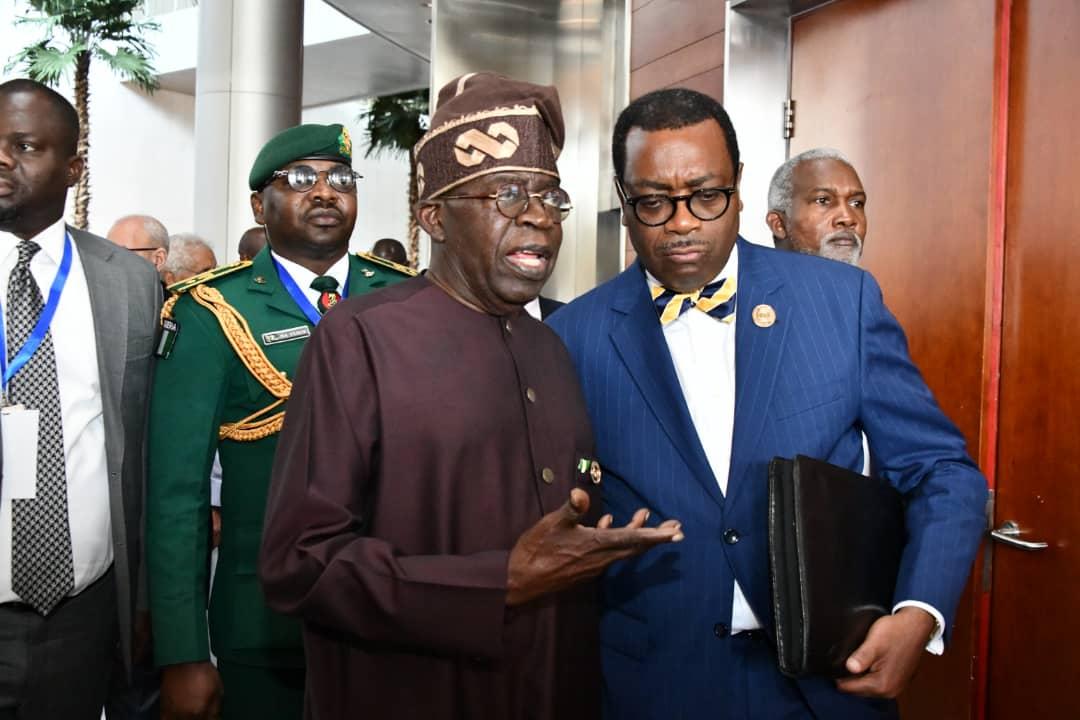Nigeria’s President, Bola Ahmed Tinubu has tasked leaders of African nations to forge collaboration with the rest of the world so as to effectively tackle existential health challenges facing the continent .
Speaking at the Ministerial Executive Leadership Programme on the margins of the 37th Ordinary Session of the Assembly of Heads of State and Government of the African Union in Addis Ababa, Ethiopia, on Saturday, President Tinubu said Africa must forge partnerships that transcend borders and sectors and as well leverage on collective expertise, knowledge, resources.

He encouraged the Heads of Nations to work with the private sector to address the complex challenges confronting the health sector.
Africa’s Global Collaboration
President Tinubu urged African leaders to commit to concrete actions and policies that will drive positive change in healthcare delivery within their respective countries and regions.
He added that synergy with the rest of the world Is not only a strategic choice but a moral imperative towards tackling the existing health problems on the continent.
The Nigerian Leader who was appointed as the AU Champion for Human Resources for Health and Community Health Delivery Partnership, said the challenges confronting the continent are too complex and multifaceted for any one entity to tackle alone.

“Together, we can catalyze meaningful change and unlock new opportunities for innovation and impact in our continent. “
He cautioned against putting Africa in isolation, and said that a global Africa should engage in well-considered partnerships with the rest of the world.
“Our continent still grapples with numerous health issues that require urgent attention. Infectious diseases remain a significant burden, such as malaria, HIV/AIDS, tuberculosis, and cholera, and threats of re-emerging infectious diseases that can devastate communities and entire economies. Access to essential healthcare services remain limited, especially in many rural areas, due to factors such as inadequate infrastructure, financial barriers, and more seriously, an acute shortage of trained manpower that is aggravated by workforce migration to wealthier countries.
“Non-communicable diseases, including diabetes, cardiovascular diseases, and cancer, are on the rise in our continent, further straining healthcare systems that are already struggling to cope. There still remains the critical need to address maternal and child health, as high maternal and child mortality rates continue to claim precious lives,” he said.
President Tinubu posited that addressing these challenges requires a multi-faceted approach, which involves a robust investments in healthcare infrastructure, training, re-training, skilled manpower retention, improving access to essential medicines, and promoting preventive healthcare measures.
The President linked the continent’s capacity to successfully address these problems with its ability to adopt a whole-of-government approach, recognizing that health outcomes are intrinsically linked to a myriad of socio-economic factors, adding: “For instance, a healthy population is essential for a thriving economy as it leads to increased productivity and reduced healthcare costs. Similarly, education plays a crucial role in improving health outcomes by empowering individuals to make informed decisions about their health and well-being.”
The Nigerian Leader emphasized that healthcare professionals are the backbone of the healthcare system, and as such, investments must be made not only in training but also in creating conducive environments that enable healthcare professionals to thrive.
Declaring the Agenda 2063, “Together, we can build a prosperous, healthier, more equitable future, for all Africans,” in line with Agenda 2063, President Tinubu said that community health delivery must be the cornerstone of Africa’s efforts, fostering partnerships with local stakeholders and empowering individuals to take charge of their own health, adding that the true measure of the continent’s success lies in its ability to reach the most vulnerable members of its communities.
“In our quest for universal health coverage, equity must be our central guiding principle. Health disparities, rooted in socio-economic inequality, gender discrimination, geographic isolation, and other systemic injustices, demand political will and targeted interventions to address them. We must listen to the voices of marginalized communities, amplifying their concerns and aspirations as we strive to build more prosperous, just, and inclusive societies.
“In Nigeria, we are making significant efforts, aimed at enhancing healthcare accessibility, affordability, and quality for all citizens, irrespective of socio-economic standing. This initiative is driven by a multi-faceted approach focusing on strengthening leadership and governance within the health sector, optimizing quality service delivery for efficiency and effectiveness.
“The Nigeria Health Sector Renewal Investment Initiative (NHSRII), which I unveiled last December, stands as a pioneering endeavour, deployed through a Sector-Wide Approach, to improve health outcomes at scale. This initiative is strategically crafted to swiftly improve health indicators and unlock the economic potential embedded within Nigeria’s healthcare value chain. Central to its mission is the unleashing of the nation’s human capital, alongside the potential economic boon that has been long dormant in the healthcare sector. The Federal Government, under my leadership, has already signed a Compact with State Governments and Development partners in this multi-stakeholder effort to improve health in Nigeria,” the President added.


Comments are closed.